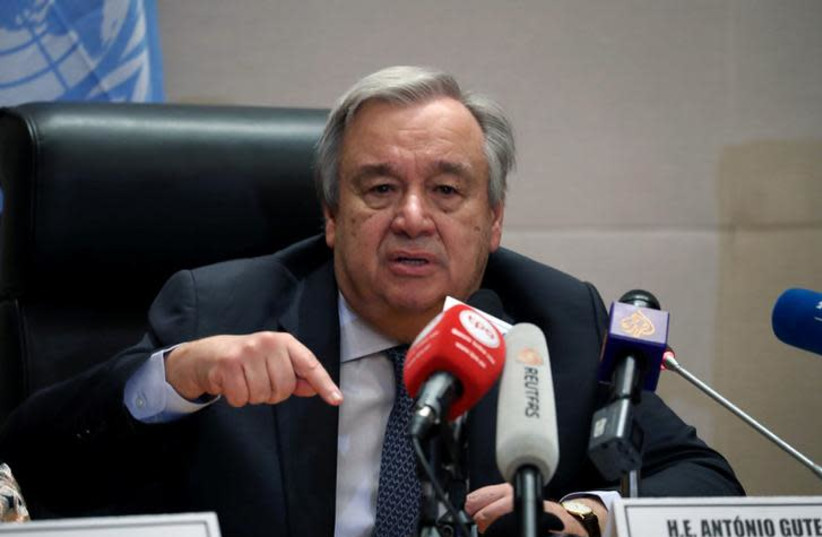The Russian-Ukrainian war opens the door to a nuclear conflict and threatens the global food supply, United Nations Secretary-General Antonio Guterres said as he called for a negotiated end to the conflict.
“Nuclear conflict, once unthinkable, is now back within the realm of possibility,” Guterres told reporters in New York on Monday, noting that he was particularly concerned about “the security and safety of nuclear facilities” in Ukraine.
“It’s time to stop the horror unleashed on the people of Ukraine and get on the path of diplomacy and peace,” Guterres said.
He has been in touch with countries involved in mediation efforts, he said, including Israel, China, France, Germany, India and Turkey. On Thursday Guterres spoke with Israeli Prime Minister Naftali Bennett.
“The appeals for peace must be heard. This tragedy must stop. It is never too late for diplomacy and dialogue,” he said.

Guterres said that Ukraine was being “decimated before the eyes of the world.”
The destruction, he warned, is expected to have a devastating impact on the world’s food supply particularly in countries already struggling with poverty and the pandemic.
“Russia and Ukraine represent more than half of the world’s supply of sunflower oil and about 30% of the world’s wheat,” the UN chief said, adding that half of the World Food Program’s wheat supply comes from Ukraine.
Some “45 African and least developed countries import at least one-third of their wheat from Ukraine [or] Russia – 18 of those countries import at least 50%,” Guterres said. “This includes countries like Burkina Faso, Egypt, the Democratic Republic of the Congo, Lebanon, Libya, Somalia, Sudan and Yemen.”
Polish Foreign Minister Zbigniew Rau, who is also chairman-in-office of the Organization for Security and Co-operation in Europe, briefed the UN Security Council on Russia’s invasion of Ukraine, which began almost three weeks ago.
Moscow’s actions threaten the existence of the 57-member organization of which Russia is a member, Rue said.
How effective can it be if one of the OSCE’s major stakes holders has used force in an effort to win territorial concessions, Rue asked.
The OSCE chairman blamed Russia for what he described as a “premeditated attack” that deliberately targeted civilians in a series of actions that “amount to state terrorism.”
Russia is attacking Ukraine with internationally banned weapons, Rue said.
“It is Russia that has decided to act outside the parameters and boundaries of international law – and, unfortunately, it is the Russian leadership that provokes the growing isolation of the country from the world,” he said.
Rue called on Russia to negotiate an end to the war, stating that “the door to diplomacy is still open.”
Russia’s Ambassador to the UN Vasily Nebenzya denied that his country was the aggressor and deflected concerns that his its forces could use chemical weapons against civilians.
Nebenzya said he feared that Ukrainian forces planned to use such weapons with the intent of blaming such an attack on the Russian military.
